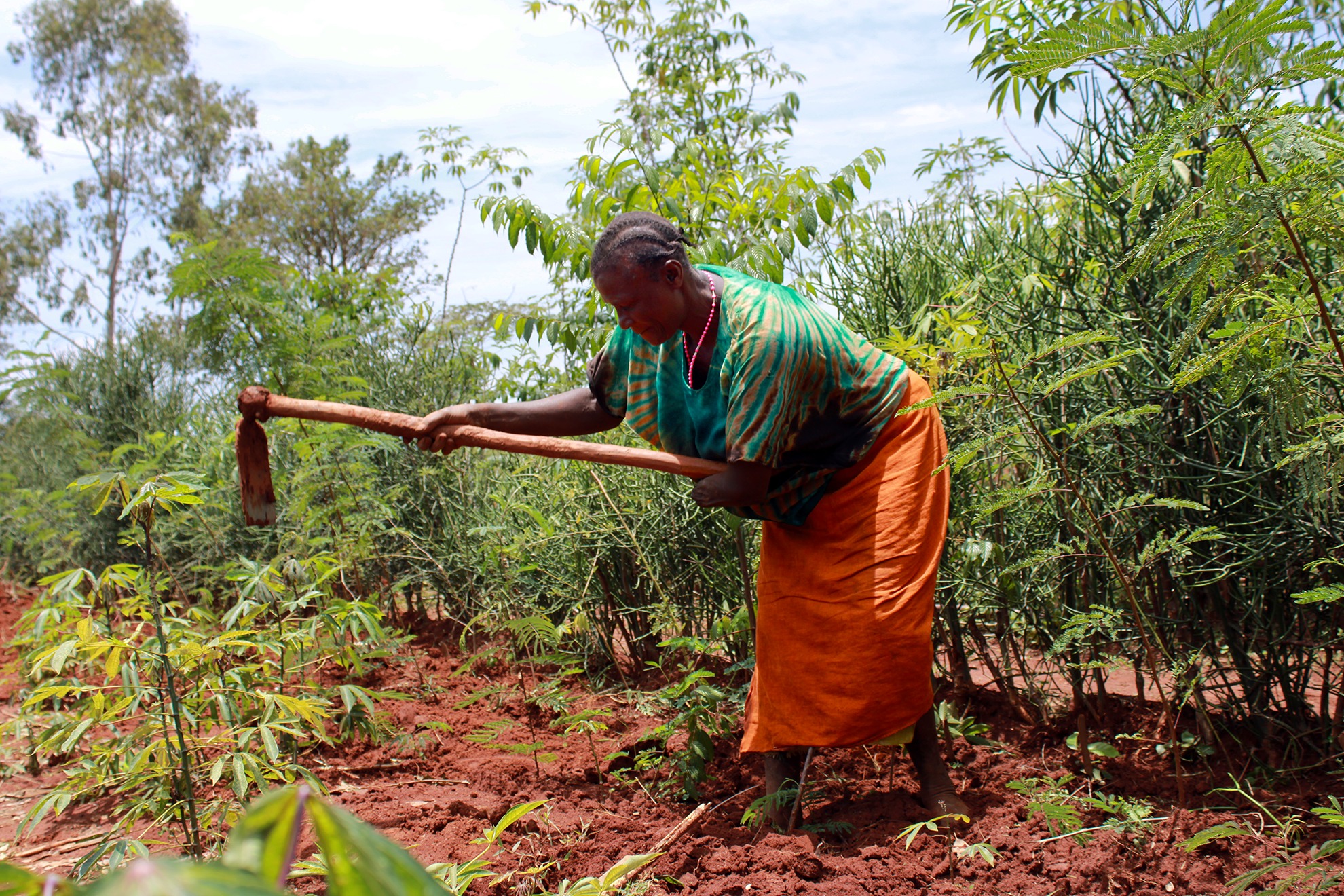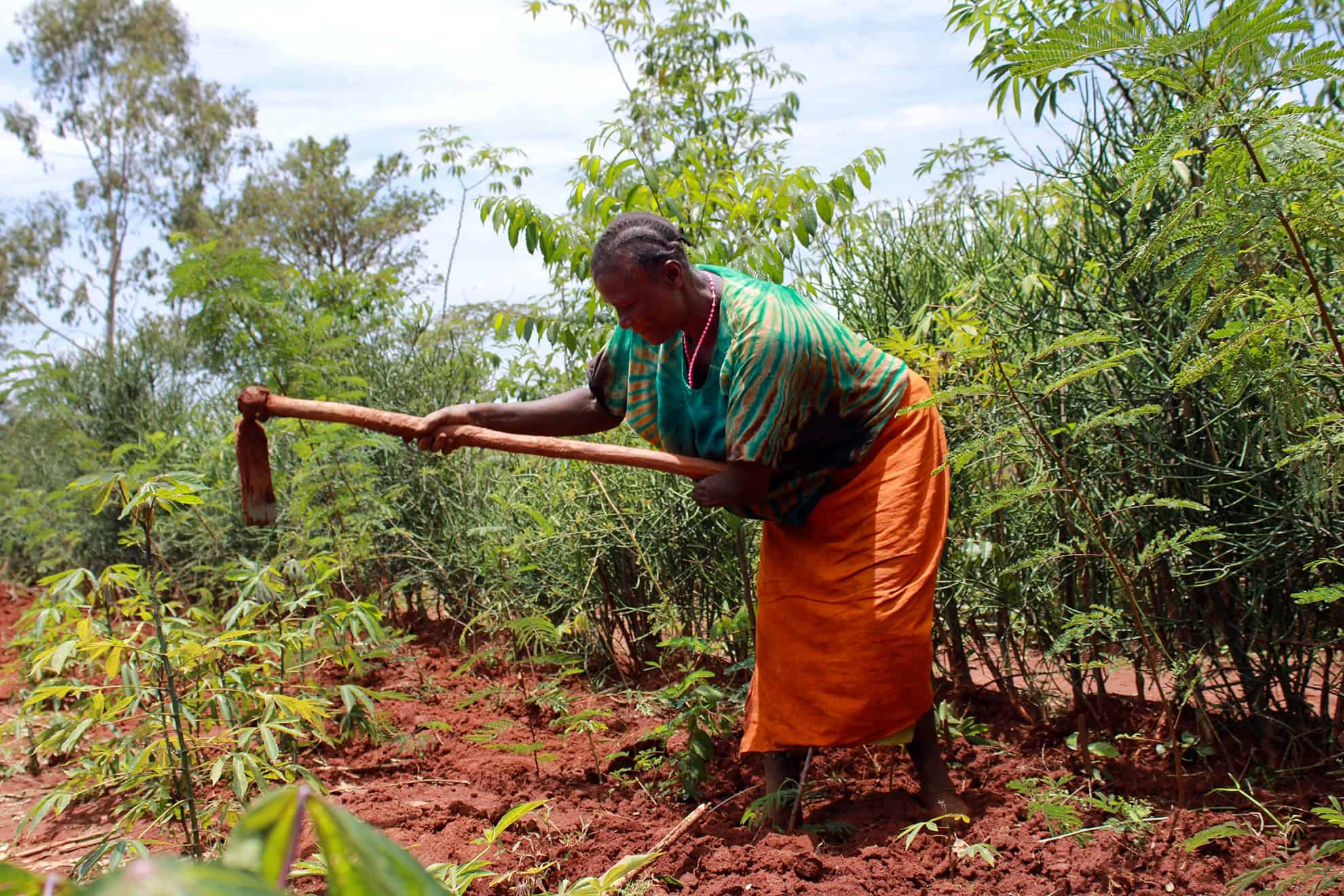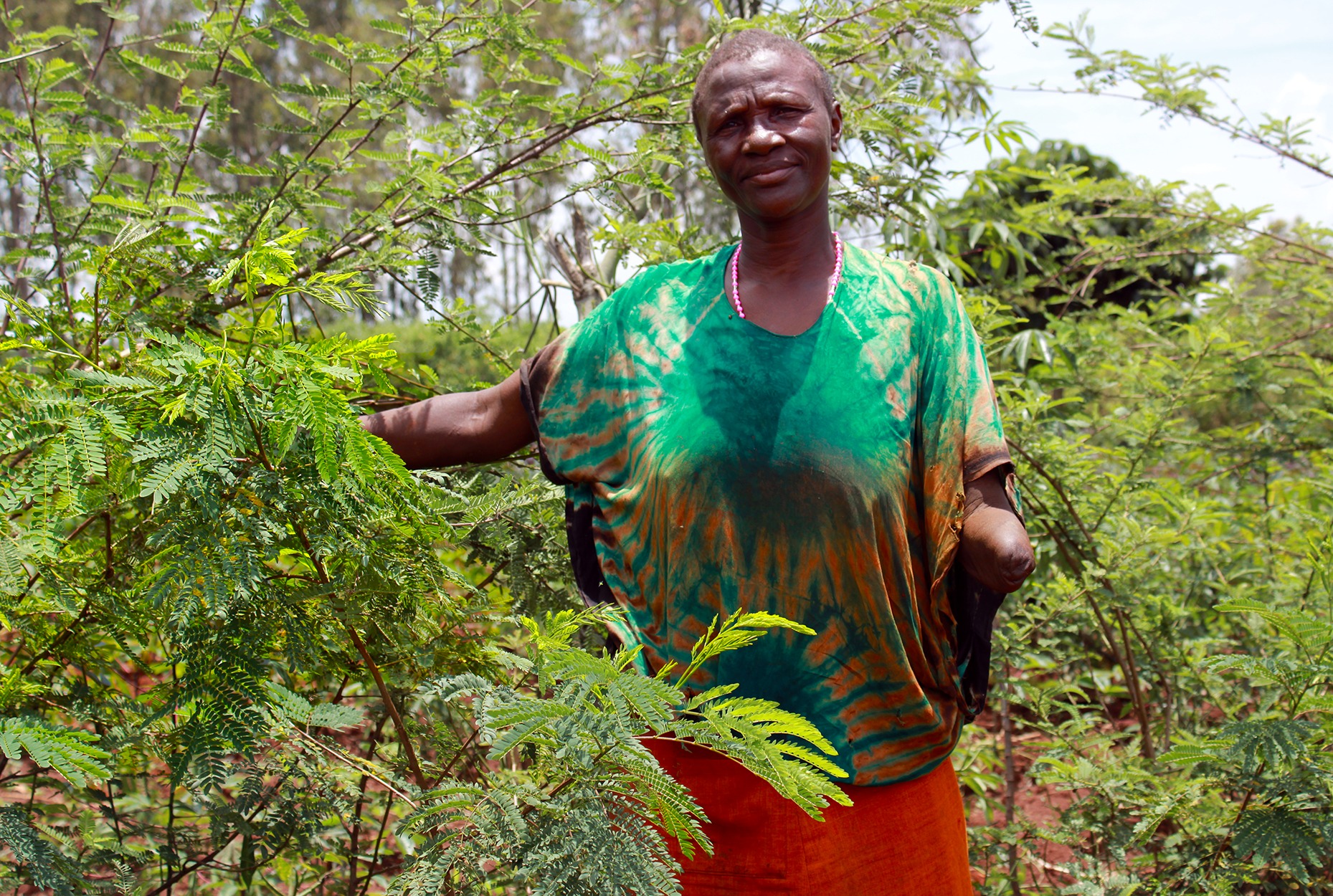
Nangira Lispa is a Ugandan farmer overcoming barriers through the Forest Garden Approach. Several years ago, she lost her left arm to an infection. She has since learned to live and work with just her right arm, but it made farming and providing for her family of 13 difficult. She would get tired very quickly and wasn’t benefiting from the one crop on her land.
“Before joining TREES, my garden had a lot of weeds and was not yielding anything,” Lispa shares.
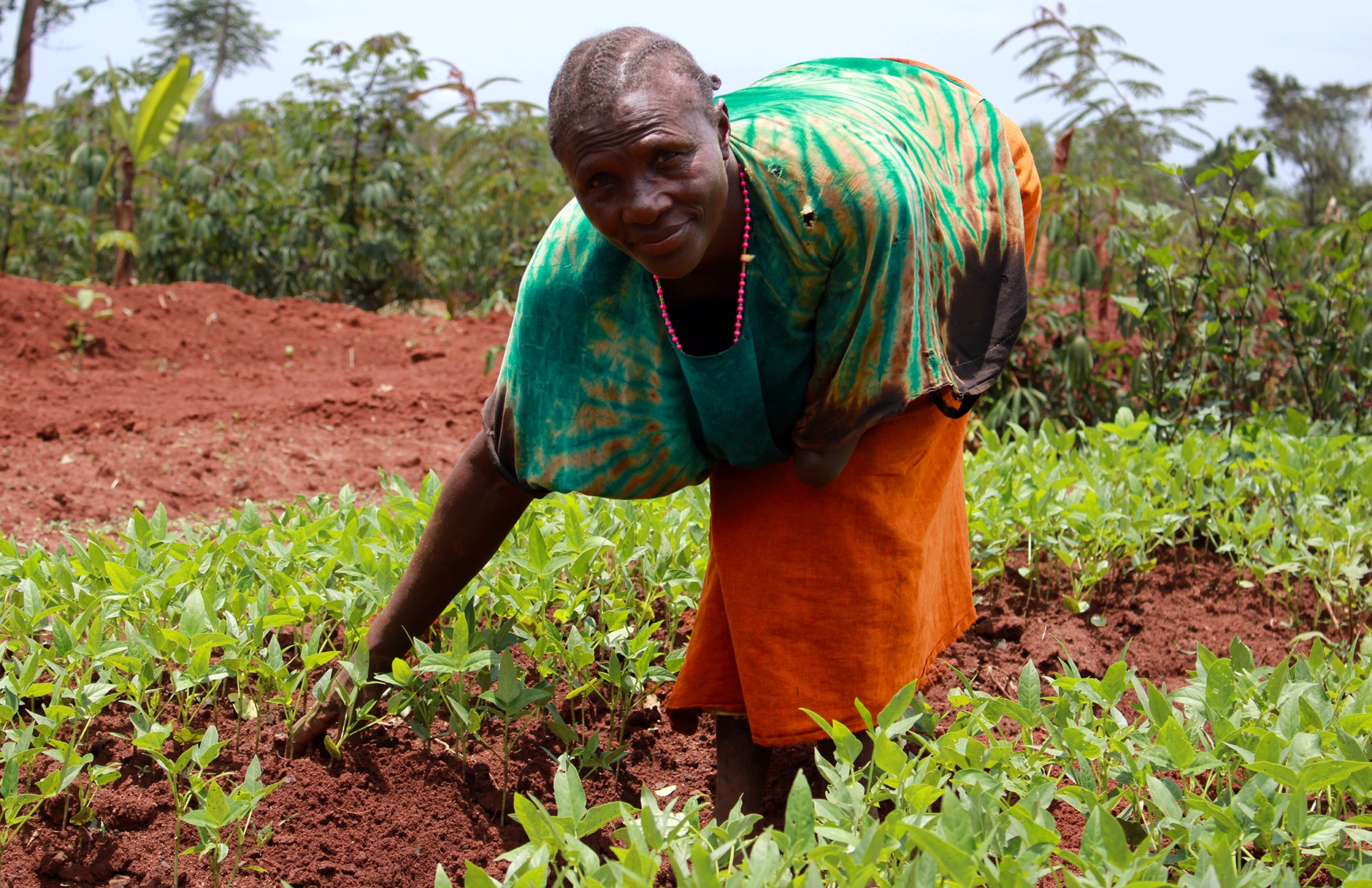
Sustainable Farming Makes all the Difference
Lispa, like the majority of farmers around the globe, was practicing monocrop agriculture. She was growing just one crop and was relying on the success of just one harvest. With no yields, Lispa recalls begging for food to feed her family.
But in 2020, she joined Trees for the Future’s training program and quickly began transforming her land. Lispa and 18 neighboring farmers in her group are learning how to transform their farms with trees and sustainable practices. They’re protecting the soil and diversifying what they grow to eat and sell. Lispa and her fellow farmers have learned to sustainably utilize their small pieces of land to support themselves.
“I work for myself using this new knowledge,” Lispa says. “I do not have to beg for food anymore because of my disability.”
A Neighboring Farmer is Thriving too
Gusino Hamphrecy is in Lispa’s farmer group and also lives with a disability. Hamphrecy says he’s learned to lead a normal life but was impressed by the inclusivity of the TREES training program.
“I can’t imagine where I would be given my disability and the covid effects. I don’t know if I would be able to feed my family during this time if it wasn’t for this project,” he says.
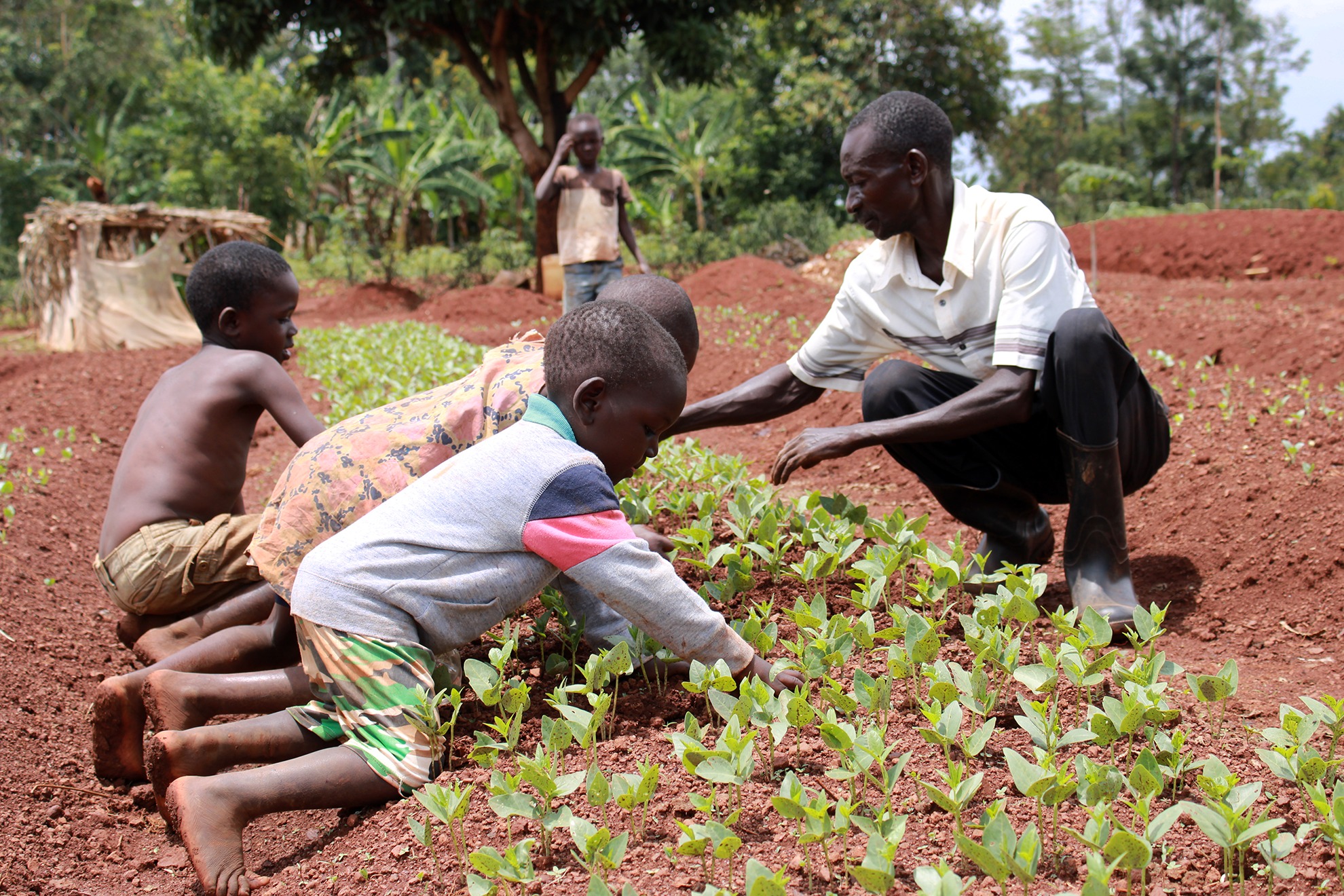
Where he once grew maize and cassava, Hamphrecy now tends to more than a dozen species.
“Before TREES, I would only plant maize in the whole garden, and I wouldn’t get even one sack. After joining TREES, I established 14 permagardens and they have given me more yields in a month than what I would get from maize and cassava in a year,” Hamphrecy happily remarks.
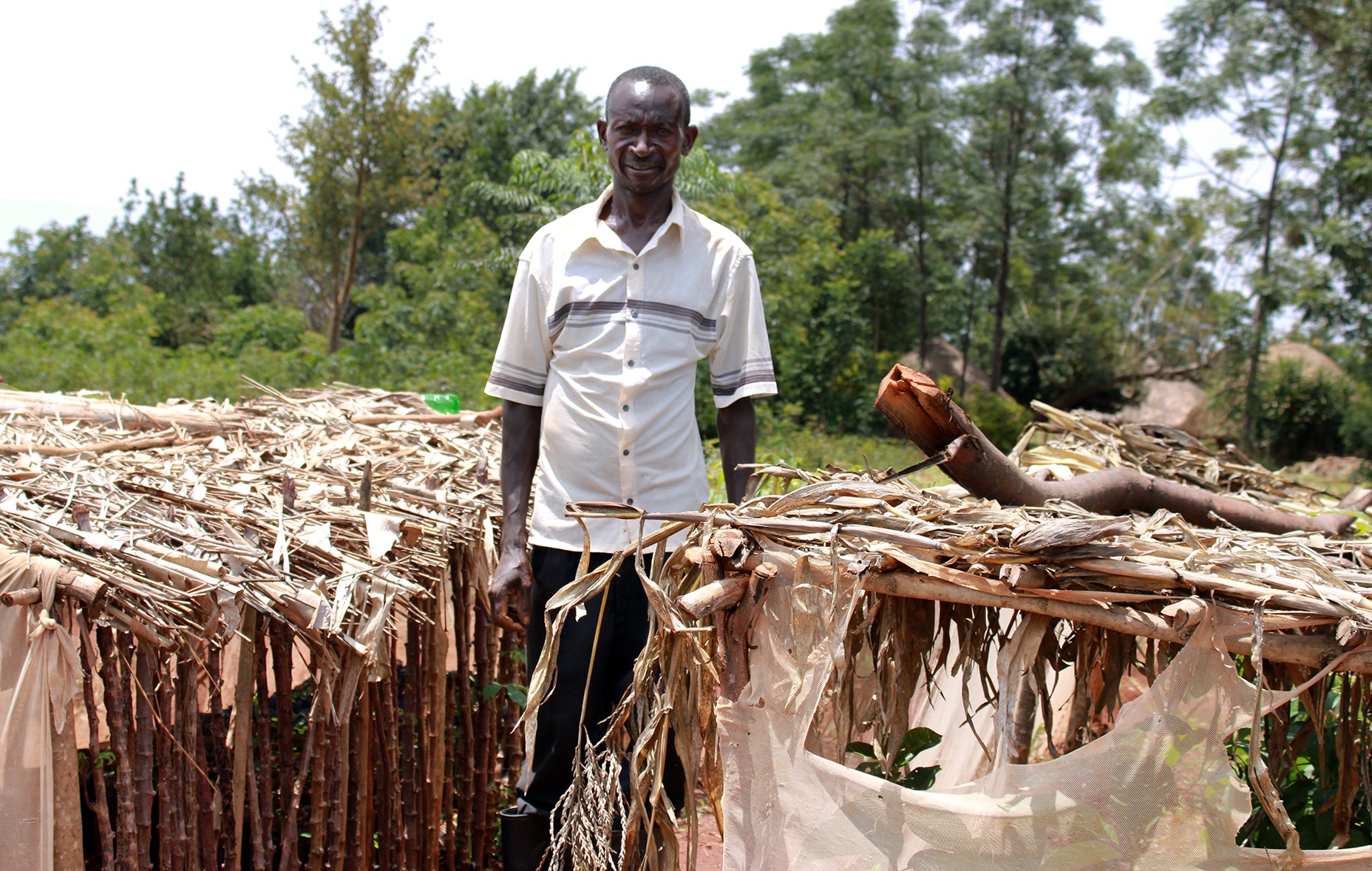
Far-Reaching Impact
Lispa and Hamphrecy are among more than 23,000 farmers overcoming challenges and breaking down barriers through Trees for the Future’s Forest Garden training this year alone.
“I am grateful that I can now grow my own food for my family,” Lispa says.
Help Trees for the Future train more farmers like Lispa, donate today.
